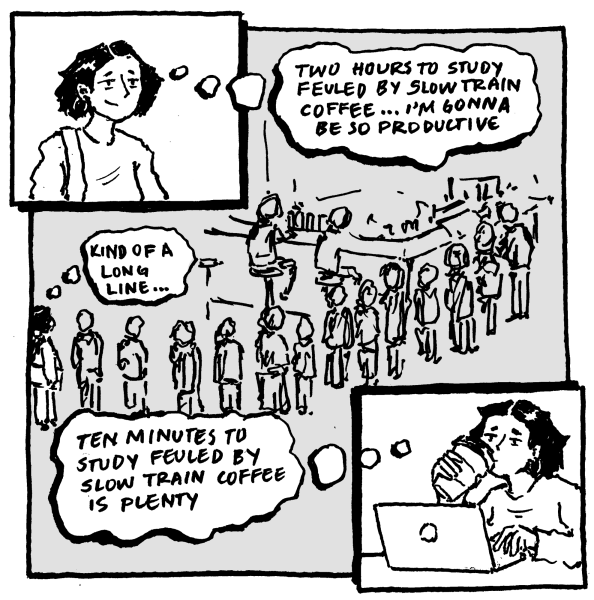Privacy in Digital Age Under Attack
We are living in a dystopian sci-fi novel. Or at the very least, we might be headed that way. The government is tracking our every move and, even worse, pretending that we consent to it.
In 2010, Timothy “Little Tim” Carpenter and three other men robbed a Radio Shack, stealing hundreds of cell phones. Little did they know that they would spark the most critical court case on digital privacy to date. After eight more robberies, Little Tim was arrested. Eyewitnesses identified him as the leader, testifying that he had planned the robberies and served as a lookout, waiting across the street in a stolen car for his accomplices to return with the cell phones.
Ironically, it was his own cell phone that sealed his fate.
In addition to eyewitness testimonies, the police acquired Little Tim’s cell phone records, which ultimately placed him at the scene of nearly every crime. The records detailed every place where Little Tim made or answered a call over the course of 127 days, with his phone acting as a tracking device. The police acquired all of this data without a warrant.
Little Tim was sentenced to 116 years in prison. He then sued his way to the Supreme Court.
This week, the Court is hearing arguments in Carpenter v. United States, deciding whether the seizure of cell phone records violates the Fourth Amendment — the right to protection from unreasonable searches. The American Civil Liberties Union argues that Little Tim’s cell phone records are personal property and thus protected from unwarranted searches. However, the United States argues that by using his phone, Little Tim relinquished his information to a third party — his cell phone provider — rendering the information public. This therefore allowed the police free access to records of his location; or, in this case, 12,898 locations.
Not only did these records place Little Tim at the scene of the crimes, they also tracked him at home, at church, and at the grocery store. His cell phone essentially served the same purpose as a GPS — one that chronicled his life without his knowledge.
The Court decided in 2012 that planting a GPS on a subject was illegal. However, according to the National District Attorneys Association, there is a fundamental difference in this case: “Most Americans understand that there is a necessary diminution of privacy in the digital era and are willing to accept the tradeoff.”
Although we are generally unaware of this fact, cell phone companies do ask to track your location. However, these companies have not asked their users for the right to disseminate this information. Whether cell phone providers have free rein over your records will be the key ruling of this case.
The United States argues that just as you relinquish your privacy to eyewitnesses when you go out in public, you surrender your privacy to your cell phone provider every time you make a call. In other words, calling your grandma from your dorm room is made just as public as shopping at IGA. But even the idea of comparing a human witness to a computer witness is ridiculous. Go in front of a jury and give testimony, and maybe they will believe you. Go in front of a jury and give a detailed map of ten thousand locations, and they will certainly believe you.
Cell phones are not going anywhere. Even if everybody realized tomorrow that their service provider was digitally watching them all of the time, it is not realistic that people will suddenly throw their phones in a heap and set them on fire. Cell phones are, for better or for worse, entrenched in American culture — just consider the omnipresence of Instagram, Tinder, and Snapchat. People cry when their cell phones break. It feels as though we are naked without them.
260 million people in the U.S. have cell phones. If this case is decided in favor of the U.S., that means there are trillions of data points that the government can — as of right now — snatch up at any moment. While we do have laws about whether police can rip open mail, barge into your home, or pop open your car trunk, we have barely broached the topic of privacy in the digital age. To be fair, we have not had much time. The first iPhone was released in 2007 — just ten years ago. There is no precedent for this case because there has never been anything like it, which is what makes the Supreme Court’s decision so important.
As American culture becomes more and more saturated with technology, we could see our privacy dwindling — our Fitbits recorded and our self-driving cars trailed at every corner. This case could lead us into a dystopian, Big Brother future, the government recording our every move.
Put simply, this case could wipe out digital privacy. Hopefully, we will not see that future, and the Supreme Court will give a resounding “NO” to the United States government. But until then, leave your phone at home when you rob a bank.



